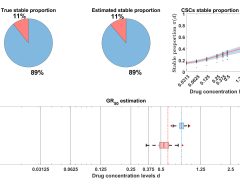Authors: Chen Wang, Sarah Erfani, Tansu Alpcan, Christopher Leckie
Published on: February 07, 2024
Impact Score: 8.15
Arxiv code: Arxiv:2402.04567
Summary
- What is new: Introduces a novel unsupervised method, OIL-AD, for detecting anomalies in decision-making sequences without requiring access to environment dynamics, reward signals, or online interactions, using action optimality and sequential association features.
- Why this is important: Anomaly detection in decision-making sequences is challenging due to the complexity of normality representation learning and the sequential nature of tasks.
- What the research proposes: An offline imitation learning model using a transformer policy network that learns a Q function and a state value function from normal trajectories to detect anomalies based on action optimality and sequential association.
- Results: Achieved up to 34.8% improvement in F1 score for online anomaly detection over comparable baselines.
Technical Details
Technological frameworks used: Transformer policy network
Models used: Behavioral cloning adapting Q function and state value function learning
Data used: Normal trajectories for offline learning
Potential Impact
Companies involved in decision-making automation, security systems, and anomaly detection services could significantly benefit or be disrupted by the insights of this paper.
Want to implement this idea in a business?
We have generated a startup concept here: SeqGuard.


Leave a Reply